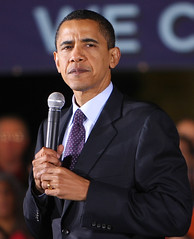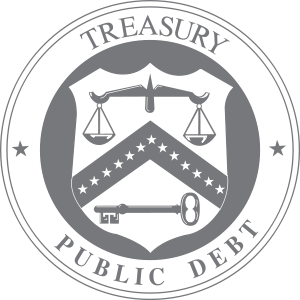 Image by Ambrosiana Pictures (P) via Flickr
Image by Ambrosiana Pictures (P) via Flickr
"The commission is planning two days of workshops in December – titled ‘From Town Criers to Bloggers: How Will Journalism Survive the Internet Age?’ – to examine the state of the news industry."
This ominous development ought to scare the pants off of anyone concerned with the maintenance of a free society – and the continued existence of dissent in an increasingly conformist profession where "journalists" are often reduced to the status of mere stenographers as they eagerly communicate to the masses the words, wishes, wit, and wisdom of government officials.
The FTC was the progeny of the "Progressive" Era, which, as Murray Rothbard reminds us, "begins around 1900 with Teddy Roosevelt and so forth. Woodrow Wilson cements it with his so-called reforms which totally subject the banking system to federal power and with the Federal Trade Commission, which did for business what the Interstate Commerce Commission did for the railroads. In other words, he imposed a system of monopoly capitalism, or corporate state monopoly, which we now call the partnership of the government and of big business and industry, which means essentially a corporate state, or we can call it economic fascism."
The creation of the FTC was occasioned by a campaign for the radical expansion of the federal government, and, not coincidentally, the beginning of World War I – a set of circumstances that roughly resembles what we are experiencing today. This gives a particularly sinister edge to the FTC’s sudden interest in the struggling newspaper industry and remarks by FTC chairman Jon Leibowitz to the effect that "Competition among news organizations involves more than just price."
That’s indubitably true: it’s all about content. Yet one fails to see how – in a free society – the government can concern itself with such matters. Or why it should. That is, until one reads onward in the Times piece, and discovers that Leibowitz "is married to Ruth Marcus, an editorial writer at the Washington Post."
The Post, like all newspapers, is losing money hand over fist: apparently its niche as the voice of elite opinion and the conventional wisdom isn’t paying off. Those "lunches" with powerful politicians and grasping lobbyists might have made some big bucks, if the whole shady business hadn’t blown up in their faces and forced them to cancel. So, when all else fails, these sorts instinctively turn to the government for some advantage or handout, although the exact nature of the "newspaper bailout" that all too many journalists have been talking about has yet to take shape. That’s what these "workshops" are for: they’ll figure out a way to feed at the public trough and no doubt come up with a credible-sounding rationale, as per the Times piece:
"Though some may be uncomfortable with government oversight of any aspect of journalism, the F.T.C. seems to be ‘attempting to play a facilitating and public educational role in gathering together various disciplines and perspectives to talk about the crisis in mainstream journalism,’ said Neil Henry, a professor and dean at the graduate school of journalism at the University of California, Berkeley. ‘The government’s willingness to raise the profile of this issue, and to help explain why it is important for a national conversation, I think in general is welcome.’"
The tone is unmistakable: those few archaic types who may experience discomfort at the thought of some Washington bureaucrat prescribing a cure for what ails journalistic enterprise are living fossils, ungrateful wretches, and paranoid to boot. No need to worry, though: Professor Henry assures us the Feds are just "facilitating" the "national conversation" – but who started this conversation, anyway? A bunch of self-styled "mainstream" journalists and a government bureaucrat married to one, who have a pecuniary interest in finagling federal funding for their cash-strapped employers and stifling the competition, i.e., Internet-based news organization (such as, say, this one).
As the FTC Web site puts it:
"The workshops will consider a wide range of issues, including: the economics of journalism and how those economics are playing out on the Internet and in print … online news aggregators, and bloggers; and the variety of governmental policies – including antitrust, copyright, and tax policy – that have been raised as possible means of finding new ways for journalism to thrive."
So what this means is that the Old Journalism is going to deploy an agency of the federal government to regulate the industry in order to save these tired old dinosaurs who don’t deserve to survive in the first place. They’ll use every weapon in the government’s arsenal to do it: antitrust laws (watch out, Craigslist!), copyright laws (forget about linking to an Associated Press story: that’s copyright infringement!), and "tax policy" – if we can’t get them by hook or by crook, we’ll just tax the New Media to death. That‘ll teach them to respect their elders!
Note, also, that the professor is very specific in his concerns: it’s "the crisis in mainstream journalism" he’s oh-so-worried about and that the government is going to find a solution to – as opposed to, you know, the other kind of journalism, which is all icky, not to mention downright disreputable.
So what is it about "mainstream journalism," anyway, that led to this supposed "crisis," which government facilitators – such as a man married to a Washington Post columnist – are going to lead us out of?
Well, I’m just guessing, but maybe "consumers" – i.e., readers – weren’t at all happy with the level and nature of the coverage provided by the Old Journalism. Maybe they began to distrust and finally abandon completely all those "news" organizations that reported with a straight face the Bush administration’s claims that Iraq had weapons of mass destruction. Maybe the social and political collusion that goes on in Washington between government officials and "journalists" led them to distrust the latter as much as they disdain the former. It hardly matters that these consumers don’t need or want "protection" from bloggers and non-"mainstream" news sources – but you can bet your bottom dollar they’re going to get it anyway. After all, the Nanny State knows best: we’re from the government, and we’re here to help…
Yeah, right!
The "mainstream" media is, by definition, the instrument and servant of the state. The Washington Post, for example, doesn’t challenge the conventional wisdom; rather, it lives to enforce it as accepted fact. And when the "facts" turn out to be otherwise, as in the case of Iraq’s WMDs – well, then, "Oops! That’s what everybody thought!"
And, of course, the media did a lot to ensure the election of our current president. Without all that favorable – even fawning – coverage, he might not have gotten the Democratic nomination and sailed to victory quite as easily as he did. So this sudden interest in the preservation of "mainstream" journalism is the payoff. In the American spoils system, all the victor’s foot soldiers are rewarded with their fair share of the pelf.
The idea that the FTC is going to start regulating the journalism business – or even start a "national conversation" about the prospect of doing so – ought to send chills down the spines of every real journalist in this country. Unfortunately, it won’t: most of these guys and gals are self-styled "progressives" who can’t very well make an argument against government intervention in their industry while they endorse bailing out the rest of the economy. Why, the government is our friend – and if you don’t believe that, you’re a wacko extremist who’s probably bringing guns to town hall meetings.
The way they’ll lull liberals into accepting this unprecedented FTC "interest" in journalism is to aver that this is Obama’s government we’re talking about here, and he would never countenance government control of the news industry. Our guy is in the saddle – so don’t worry about that whip he’s carrying, because of course he won’t actually use it…
A media bailout is coming. They’ll think up some sort of half-a**ed rationale for it. Leave it to Professor Henry and his trendy confreres; that’s what they get paid for. They won’t call it government control of the news, they won’t acknowledge that’s what they want, but when the first news aggregator gets prosecuted by the FTC for "copyright infringement" and the indispensable Craigslist is slapped with a fine for "unfair competition," please don’t say I didn’t warn you.
The FTC couldn’t regulate Bernie Madoff, in spite of being tipped off about his activities and presented with evidence of crimes – but they sure can start a "national conversation" about saving the sorry a**es of the Washington Post and the New York Times. Well, I’d like to start a "national conversation" of my own – all about how scared, clueless, and terminally lazy "journalists" and their friends in high places are angling for advantage, at our expense. That’s one conversation Leibowitz, his fellow bureaucrats, and their journalistic handmaidens would never permit.
Read more by Justin Raimondo
 Image by jmtimages via Flickr
Image by jmtimages via Flickr
